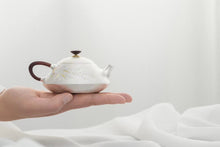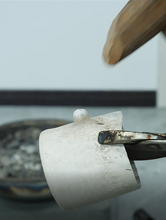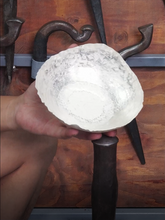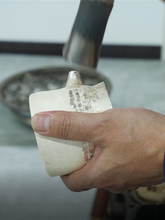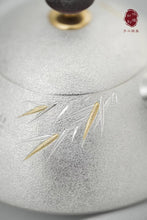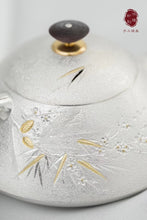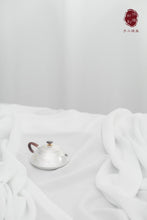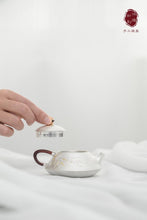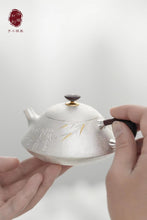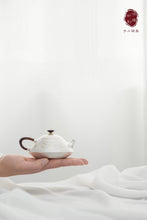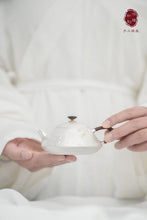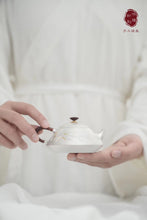
"Silver kettles are the most valuable for boiling water, and silver kettles are the most respected for brewing tea."
Among many tea utensils, silver kettles, as the top-of-the-line, are always the "white moonlight" in the hearts of tea lovers. The ancients said that "water is the mother of tea, and utensils are the father of tea." Lu Yu, the tea saint, loved tea all his life and was proficient in tea ceremony. His "Tea Classic" says: "Porcelain and stone are both elegant utensils, but they are not solid and difficult to last. Silver is the cleanest."
Compared with "sand soil, porcelain brittleness, and iron rust", silver kettles are clean and tasteless when boiling water, durable, and do not require too much care. As long as you use it, you will love it. Why is silver the most valuable for boiling water and brewing tea?
There are two reasons:
Tea is delicious: The ancients said that water boiled in a silver kettle is "silky and silky", which means that the water is soft, thin, smooth, and silky, with a sweet and mellow taste, which can effectively improve the taste of tea.
Durable: A pure handmade silver kettle is durable and can be used for a lifetime, and can also be passed down to future generations as an heirloom.
The good of silver kettles is known to tea lovers. Today, Tongxinshe Teahouse recommends a 9999 pure silver exquisite treasure silver kettle "Three Friends of Winter Inlaid with Gold and Silver Kettle" from the century-old kettle-making family "Hongji Treasures".
The Three Friends of Winter, namely plum, bamboo and pine, are known as the three most favorite plants of ancient Chinese literati. They are not afraid of the severe cold and stick to their vitality, symbolizing tenacity, purity and patience.
——· Three Friends of Winter inlaid with gold and silver kettle ·
—— • Size: 11.5 x 6 cm •
Capacity: 150 ml •
Weight: 145 g •
Material: 999.9 pure silver •
Craftsmanship: pure handmade
Hongji Treasures in Heqing, Yunnan, started in the Guangxu period of the Qing Dynasty. It has been passed down for five generations and still insists on using traditional kettle making techniques. Teacher Hong Jike, as the fourth-generation inheritor of Hongji Treasures, is proficient in a variety of hand-made kettle making techniques.
Hong Jike, Bai nationality, born in 1971. The fourth-generation inheritor of Hongji Treasures. The ninth batch of intangible cultural heritage projects in Heqing County, the representative inheritor of silver jewelry forging techniques (Heqing silverware forging techniques).












